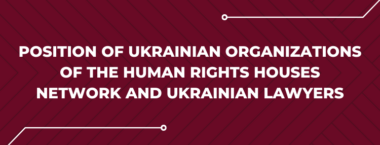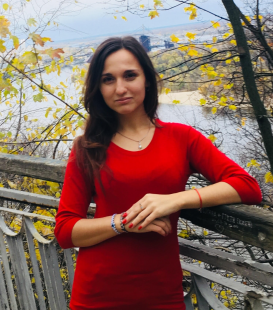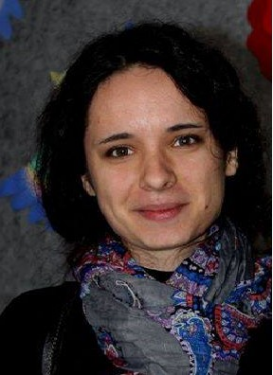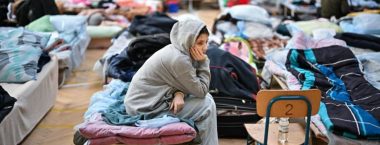
Position of Ukrainian human rights defenders on the EHU project “Lawyers for the Rule of Law. Education and Professional Training”
Position of Ukrainian organizations of the Human Rights Houses Network and Ukrainian lawyers on the...
17 July 2023
Last month UHHRU conducted the Human Rights Workshop training course. Over the course of several meetings, graduate students of the Institute of International Relations learned about a number of international law related subjects from the Union’s experts.
On April 5, Oleg Martynenko, head of analytics at UHHRU and expert on police, told the students about International Police Standards.
The reform of the security sector, which includes the National Police, is a necessary component of institutional reforms, as part of the implementation of transitional justice in Ukraine. The students of international law of the Institute of International Relations of the Taras Shevchenko National University of Kyiv shared their perspective as to what such a reform should entail and what police the country needs under conditions of the ongoing armed conflict.
What reforms does the National Police need to be effective during the armed conflict?

Anna Ivashchenko: “Since the conflict in eastern Ukraine began, Ukraine’s National Police has undergone a number of reforms. And, analyzing the activities of its divisions, I believe those reforms are insufficient. Also, a question arises: is the work of the above-mentioned divisions as effective in practice? How well can Ukrainian law enforcement officers, for instance, cooperate with the local population, do the residents of frontline territories resist Ukrainian special forces? In my opinion, not enough legislative measures have been taken, and right now executive authorities as well as the National Police itself should focus on exercising their powers under actual conditions of the conflict, in order to ensure public safety and order, guarantee respect for human rights and freedoms, and protect society and the state as a whole, fighting crime and providing real assistance to those who need it during the conflict.”
Nadiya Serbenko: “The Law of Ukraine On National Police does not specify the use and involvement of National Police officers during armed conflicts. Only Article 8 of the recently adopted Law of Ukraine On the Particulars of State Policy on the Restoration of State Sovereignty of Ukraine over Temporarily Occupied Territories of Donetsk and Luhansk Oblasts deals with the involvement and use of the forces and resources of the National Police to ensure national security and defense and to counter Russia’s armed aggression in Donetsk and Luhansk

oblasts. Thus, I believe, in order to make the National Police effective during the armed conflict, it is necessary to:
I would like to stress that an armed conflict often doubles the pressure on policemen: they have to participate in the fighting as well as perform their duties set forth by the Law On National Police. Such expansion of duties during the armed conflict and the difficulty of performing them have an immediate effect on potential human rights violations, which is why it is necessary and appropriate to take certain measures in order to uphold the rule of law, justice, and fundamental human rights and freedoms.”

Ivanna Karpenyuk: “The police must be prepared to work under conditions of high crime rates, which is often the case during armed conflicts; they should be prepared to take preventive measures to stop mass disturbances. The armed conflict should not affect the work of police too much; for instance, they should not be involved in military operations as police officers. In addition, statistics show that police officers often abuse their powers during an armed conflict. Therefore, independent supervisory mechanisms and conditions should be created to ensure effective investigations of such incidents.”
 Oleksandra Sydorko: “Given the low efficiency of the work of the National Police, a radical reform is necessary. There are numerous flaws in the work of police officers today, which leads to frequent violations of the rule of law.
Oleksandra Sydorko: “Given the low efficiency of the work of the National Police, a radical reform is necessary. There are numerous flaws in the work of police officers today, which leads to frequent violations of the rule of law.
In regards to the armed conflict, the system of recruitment and training should be completely overhauled first. Clear requirements and criteria must be set for aspiring police officers. We are seeing more and more incompetent and often poorly trained officers in the streets, they are unable to maintain order even in peaceful conditions, not to mention during the armed conflict.
The main mandatory aspects in the training of policemen should include psychological training, medical skills and provision of first aid, and physical training. Police officers working under conditions of the armed conflict should be aware that they are responsible for human life, and the existing system is obviously ineffective.”
cover photo – npu.gov.ua
If you find an error on our site, please select the incorrect text and press ctrl-enter.

Position of Ukrainian organizations of the Human Rights Houses Network and Ukrainian lawyers on the...
17 July 2023

On April 4, 2023, the Cabinet of Ministers of Ukraine (CMU) approved Order No. 288-r,...
03 May 2023

Since the beginning of the full-scale Russian invasion of Ukraine, about 150,000 civilians who fled...
17 October 2022
Within the framework of Crimea Academic Forum – 2022, Taras Shevchenko National University of Kyiv...
15 September 2022